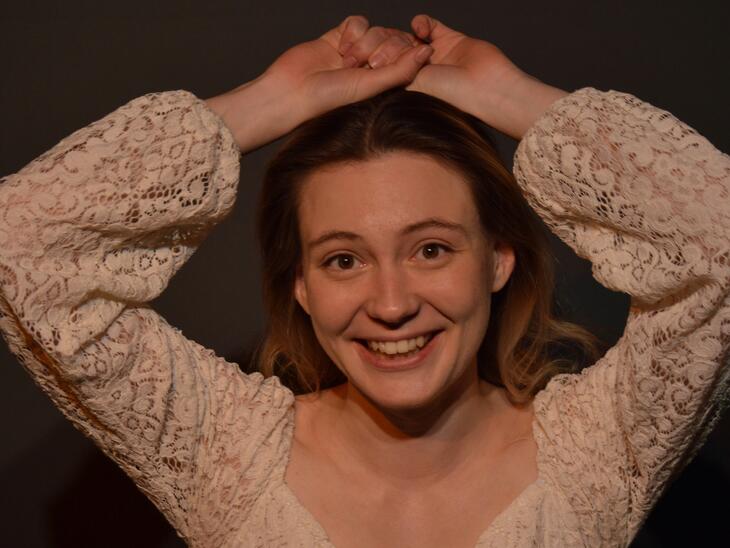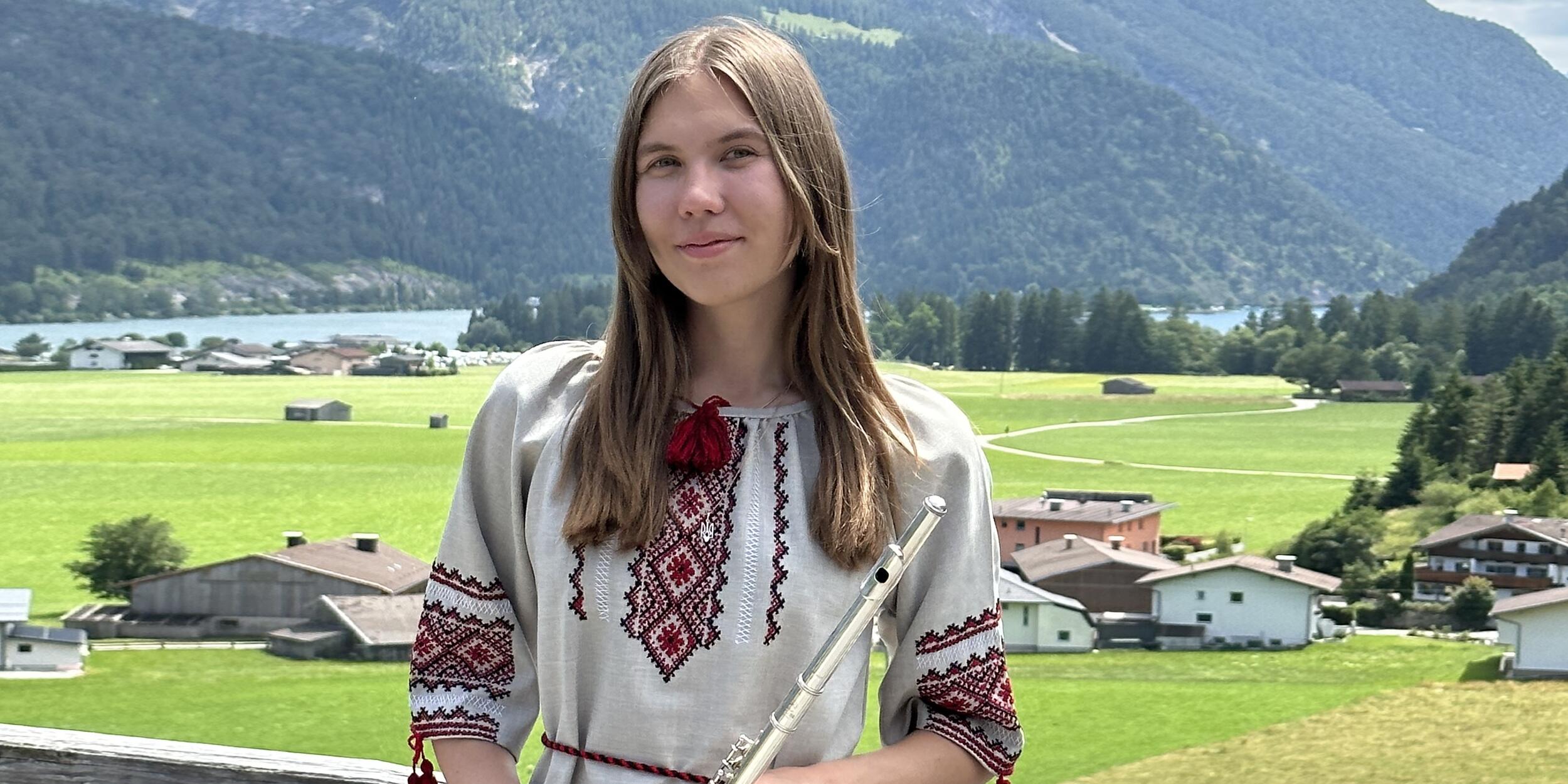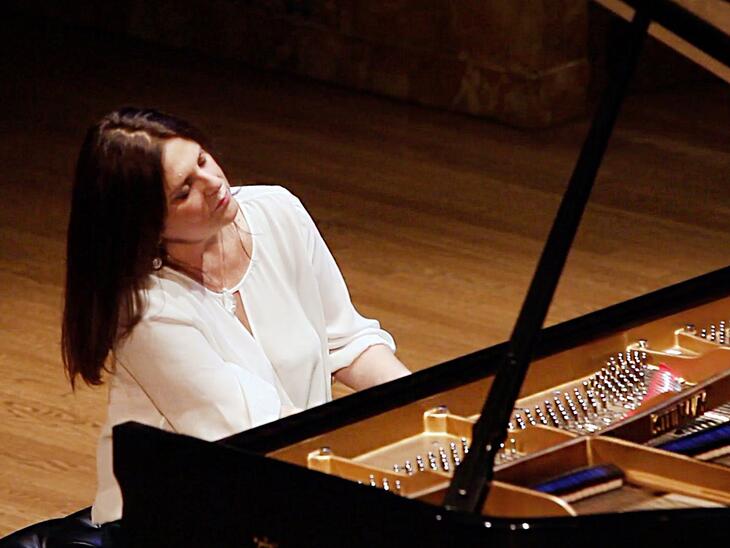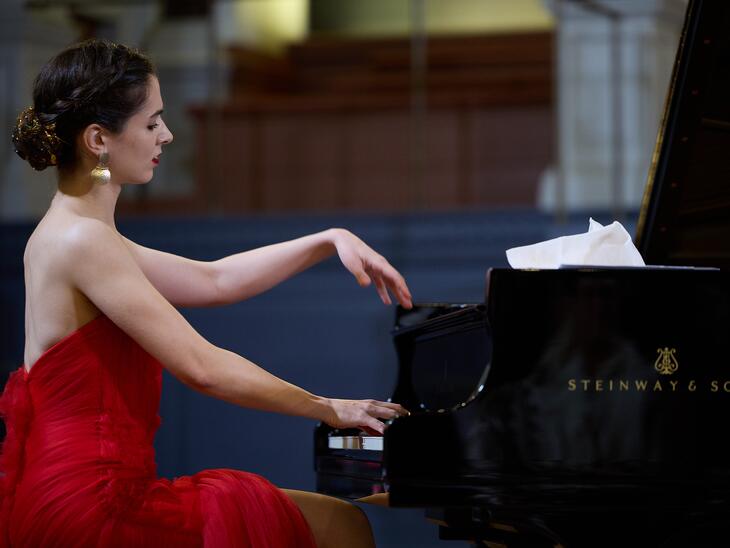She has given solo concerts, concerts with choir and orchestra, won prizes in several competitions, taken part in scientific conferences, participated in opera productions, theatre performances and a music tour in Europe. She has dedicated herself to art and music since early childhood, starting with the recorder and soon switching to the flute. In addition to music, she loves photography and learning languages such as English, Chinese, Polish, Korean and most recently German and Italian.
When she arrived in Salzburg, she first attended German courses and within two years had reached the fluent language level of ‘B2’. She has taken part in numerous choral and orchestral projects in Salzburg, is a member of the Salzburg University Choir and has attended masterclasses. Courses in the fields of folk music, jazz and popular music, Italian, improvisation, applied music for film, theatre and related arts as well as pedagogy fill her current semester calendar. She is currently undergoing the nostrification process at the Mozarteum University, after which she will be authorised to teach at various music schools in Austria. In addition, a ‘lateral entry model’ is open to her, which also opens up new career opportunities in Austrian compulsory schools and secondary schools with extra-occupational courses.
How did you end up at the Mozarteum University in Salzburg?
My teacher at Borys Grinchenko University in Kiev had already been to the Mozarteum University several times before for various conferences and professional exchanges. When the opportunity arose to come to Salzburg to the Mozarteum University, my teacher and my mother encouraged me to do so and today I am very happy to have embarked on this journey together with a group of other students. I received a very warm welcome at the Department of Music Education.
What were the biggest hurdles or surprises for you back then? What differences did you particularly notice compared to your home country?
At first, of course, everything was new. The first few days were stressful, the train journey took a very long time, we must have been travelling for 24 hours. But today I feel at home here in Salzburg. I enjoy going to concerts and am also interested in other instruments. I recently heard the famous flautist Emmanuel Pahud with the Orchestra della Svizzera italiana. He played modern pieces, it was marvellous. He is a great role model for me and I was able to experience his technique and sound live.
I experienced differences in the artistic project preparation. In Salzburg, we realised an orchestral project in just one week. At the university in Kiev, we had longer rehearsal times for similar projects. That was a change. But we also had more time for the choir rehearsals here in Salzburg (laughs). In Kiev, there is also no distinction between music education and concert studies. The degree programme includes both. For the nostrification in Austria, I now have to add some pedagogical subjects. But I have two years to do that. I particularly like the variety of music, the new music and the festivals that are organised here in Salzburg and at the Mozarteum. In everyday life, Salzburg seems very expensive, although the food prices are similar, Salzburg is much smaller than Kiev and you can walk almost everywhere. That is pleasant. The weather here is very changeable, something I've never experienced before. But the temperatures are similar, although more constant in Kiev.
How did you get into music and the flute? What significance do music and art have for you?
I started singing in a choir as a child, but had problems with my breathing. A doctor advised my mum to try playing a wind instrument and that's how I came to the flute. First in private lessons, then to music school, on to college and finally to university. Music and art have always played a big role for me.
How would you describe your instrument?
The flute is delicate, fragile and yet sounds brilliant. It comes first in the score (laughs) and always has a leading role, it's essential. The flute is represented in every orchestra, but also in chamber music, so it's very versatile. That's what I like about my instrument.
What do you like to play?
I love the classical and romantic periods and also play baroque music. I'm not yet so well versed in new music, but I'd like to learn that too.
What would you like your professional future to look like? Would you like to play with a big famous orchestra?
Yes, of course. Becoming an orchestral musician is my big dream. All philharmonic orchestras would be great to work with, I love the repertoire. My plan is to work both as a teacher and as a musician. But I also sometimes play in smaller ensembles. Making music together is important and wonderful. I also enjoy singing.
Have you already taken part in a number of orchestral and choral projects? Which projects were these?
In Salzburg, I took part in major projects with the Mozarteum University Choir under Jörn Hinnerk Andresen, such as the Sea Symphony by R. Vaughan-Williams, the Requiem by W. A. Mozart and Frank Schwemmer's ‘Mein Wort mein Glück mein Weinen’. I also sang in the choir ‘One Peace’ under the direction of Rosemarie Demelmair and Laura Humphreys. I played in various class concerts with Britta Bauer and Johannes Wilhelm and in 2022 and 2023 I was able to take part in the ‘Young Symphonic Winds Orchestra’ under the baton of Katrin Fraiß and play in the orchestra in G. Verdi's Requiem under the direction of Gordon Safari. I perform with the ensemble ‘Bella Musica’ under the direction of Stefan David Hummel and since this year I have been singing in the Salzburg University Choir and in the Cantorey Salzburg, including the German Requiem by J. Brahms.
What other special experiences have you had here in Salzburg?
I've learnt that I can solve any problem myself, and I'm a little proud of that. There are things that you don't have to worry about in familiar surroundings, surrounded by family and friends, that you don't even think about. But when circumstances suddenly change, it's a big challenge and I've learnt that I can manage it. I have gained a new independence.
What do you miss most?
The family. I haven't been home since April 2022, but my mum is coming to visit me and I'm really looking forward to it.
To be allowed to work as a music teacher in Austria, your degree from Ukraine has to be nostrified. Which subjects do you still need to complete?
Jazz, pop and folk music, of course there are differences to Ukrainian folk music. In addition, improvisation, which was a bit stressful for me as I had little experience with it. However, the teachers helped me a lot by teaching me that there are no mistakes in improvisation (laughs) - so I approached the pieces in a more relaxed way. I'm also going to take subjects in specialised didactics and pedagogy.
What opportunities are there for you now?
Of course I want to play concerts, rehearse new repertoire, practise a lot but also teach. I would like to take part in many new projects. It's great at the Mozarteum and everything is interesting. There are so many projects and class evenings, I feel very comfortable and at home. My first teacher at the Mozarteum was Britta Bauer and I am very grateful for her support. She helped me a lot in my professional training. I don't want to leave any time soon. But basically I'm open to everything. I want to take advantage of many opportunities, but of course I also know that there are a lot of good flautists out there and the competition is fierce.
What are your wishes for the future?
I'm looking forward to a concert at the end of March in the Wiener Saal, where Ukrainian artists will play Ukrainian music.
Is there anything else you would like to tell us?
I would like to thank you for the opportunities I have been given here and for the warm welcome I have received.
- - -
Information
Like the Republic of Austria, Ukraine is a member state of the European Higher Education Area (Bologna Declaration) and has also ratified the Lisbon Recognition Convention. This means that all degrees from Ukrainian universities and colleges are also valid in Austria and are recognised as such here.
If someone with a Ukrainian university and higher education degree wishes to work in a regulated profession in Austria, for which special qualification requirements must be proven, the university and higher education degrees must undergo nostrification in Austria, in which the Ukrainian university and higher education degree is equated with the corresponding Austrian degree. Nostrification can be applied for at any public university, teacher training college or university of applied sciences at which a comparable Austrian degree programme has been established.
https://www.bmbwf.gv.at/Themen/HS-Uni/Aktuelles/ukraine/FAQ.html




